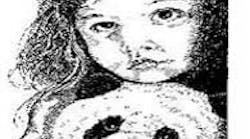Child abuse is a painful topic for most of us to think about but for children who live in abusive households, that pain and fear is immeasurable. April is Child Abuse Prevention Month and I would like to focus on the role of the oral health professional in combating child abuse. This article will provide rationale and resources for recognizing and reporting child abuse.
Nearly 65 percent of all child abuse injuries involve injury to the head, neck or mouth, often putting oral health professionals in a prime position to notice abuse of patients. Lynn Mouden, DDS, MPH, Director of the Office of Oral Health, Arkansas Department of Health, has made child abuse prevention in the dental office his personal mission. He is the founder of the international P.A.N.D.A. (Prevent Abuse and Neglect Through Dental Awareness) program, which has empowered dental care professionals throughout the world to look for signs of abuse and take action when discovered. He has partnered with Oral Health America (OHA) and encourages the dental community to help protect America’s children.How can we help? By looking for signs of abuse on our patients. “For one, bilateral injuries to the face are automatic indicators of abuse,” said Dr. Mouden. “For example, it is extremely difficult for a person to fall down and hit both sides of their face.” Similarly, patterned injuries that indicate trauma from a hand or implement may also trigger further inquiry. “Dentists in every state and dental hygienists in most states are required by law to report suspected cases of child abuse and neglect, and elder abuse and neglect, to the proper authorities. P.A.N.D.A. programs in each state work make sure that providers in all areas know the correct reporting procedures and contact numbers for protective services agencies,” Dr. Mouden said.(1)
1. Press Release OHA. APRIL IS CHILD ABUSE PREVENTION MONTH. Oral Health America Encourages the Dental Community to Watch Out for America’s Children. For Immediate Release, March 30, 2011. Contact: Melissa Hoebbel. 312.836.9900. [email protected].2. www.childhelp.org/pages/statistics.3. midatlanticpanda.org/html/provider_role.cfm. 4. www.childhelp.org/. 5. www.childhelp.org/pages/help-for-professionals. 6. childhelp.3cdn.net/e0797c5e54560b1962_bym6b9foq.pdf. 7. www.compassionfatigue.org/. 8. www.healthycaregiving.com.
Maria Perno Goldie, RDH, MS











